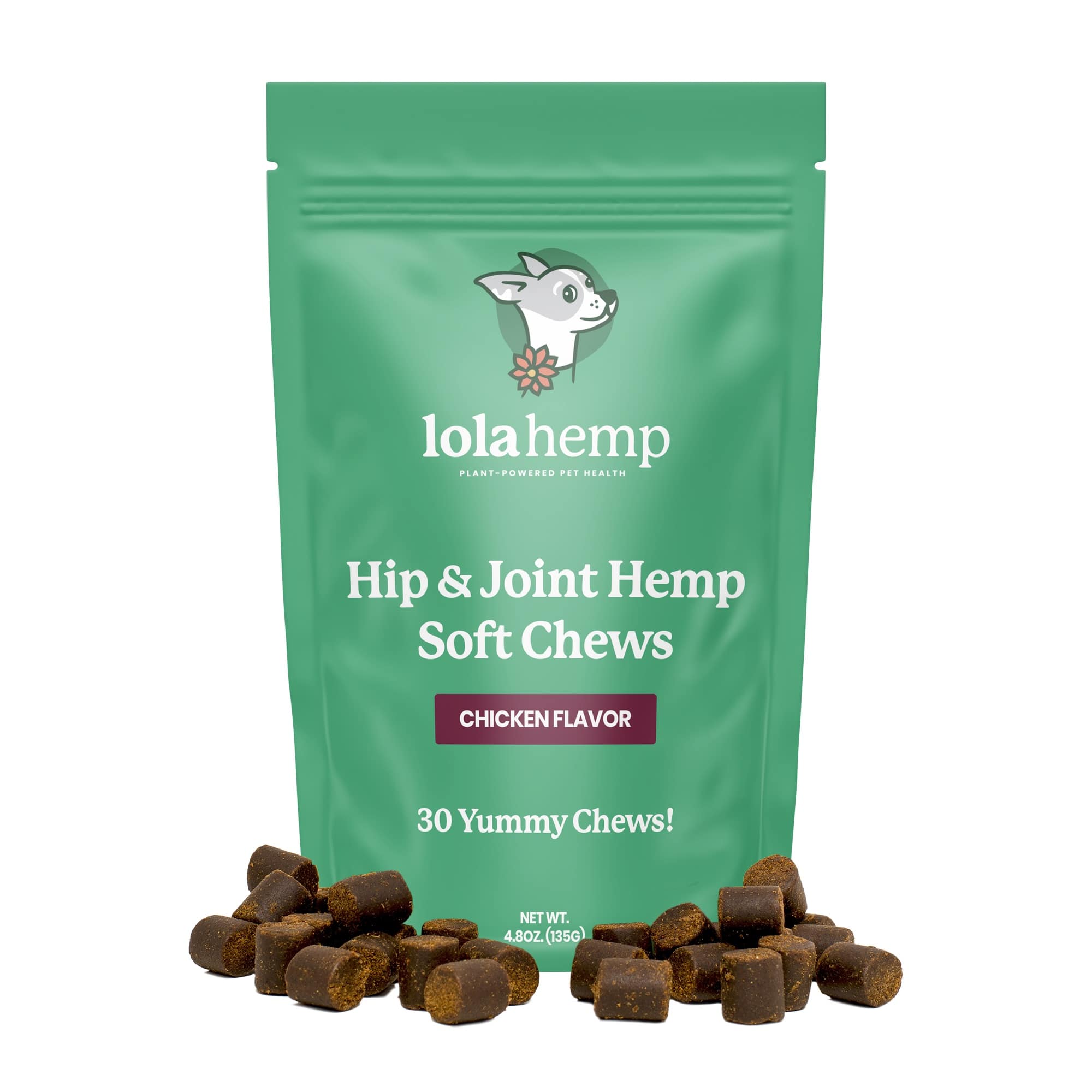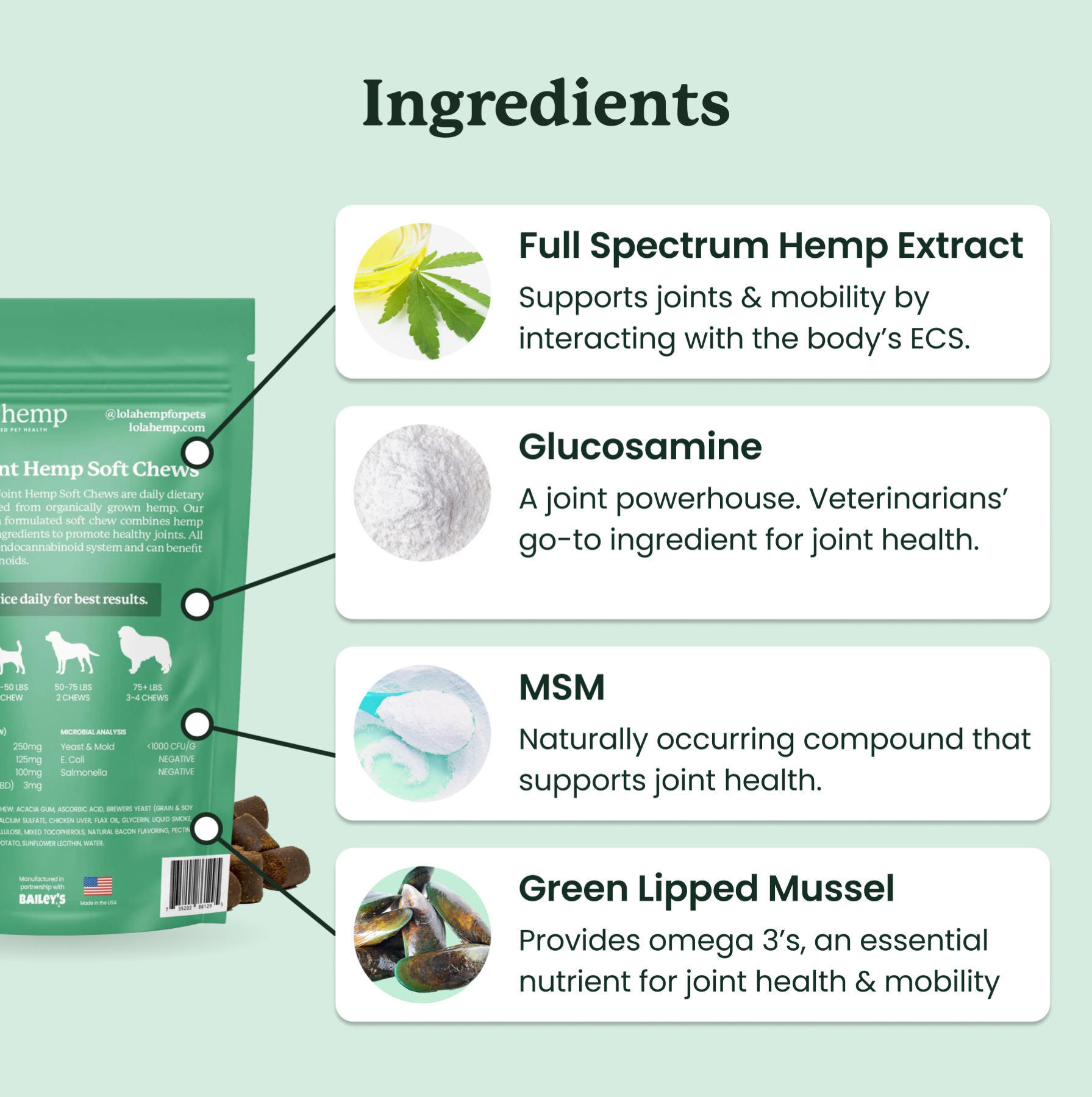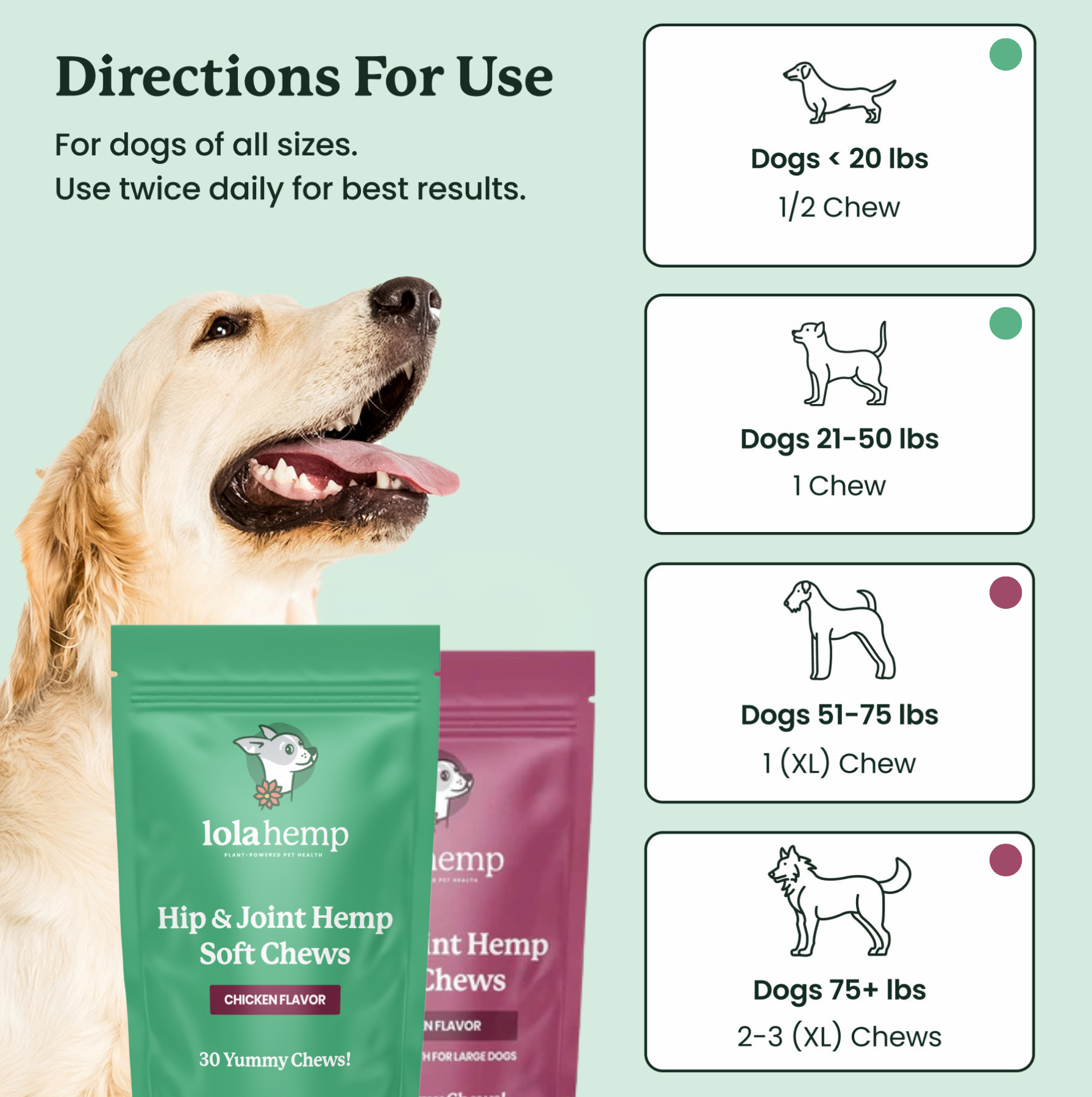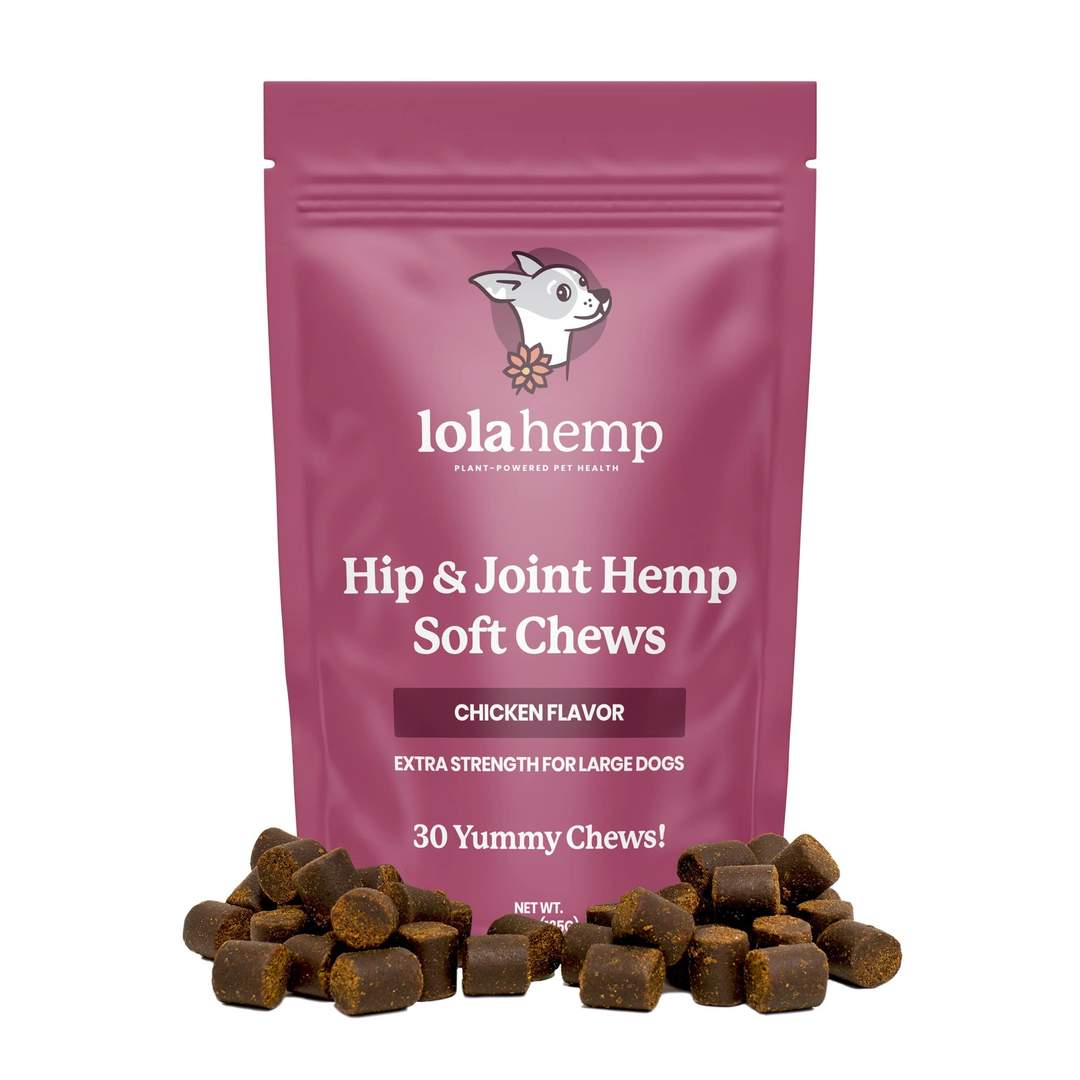Green-lipped mussels (GLMs) are a powerful joint supplement for dogs, packed with natural compounds that support mobility and comfort. Native to New Zealand, these shellfish contain omega-3 fatty acids, glycosaminoglycans, and antioxidants that have been linked to improved joint health.
While research on GLMs is still developing, many dog owners have noticed positive changes in their pets after incorporating them into their diet. This article will explore the benefits of green-lipped mussels for dogs, their effectiveness, and how they compare to other joint supplements.
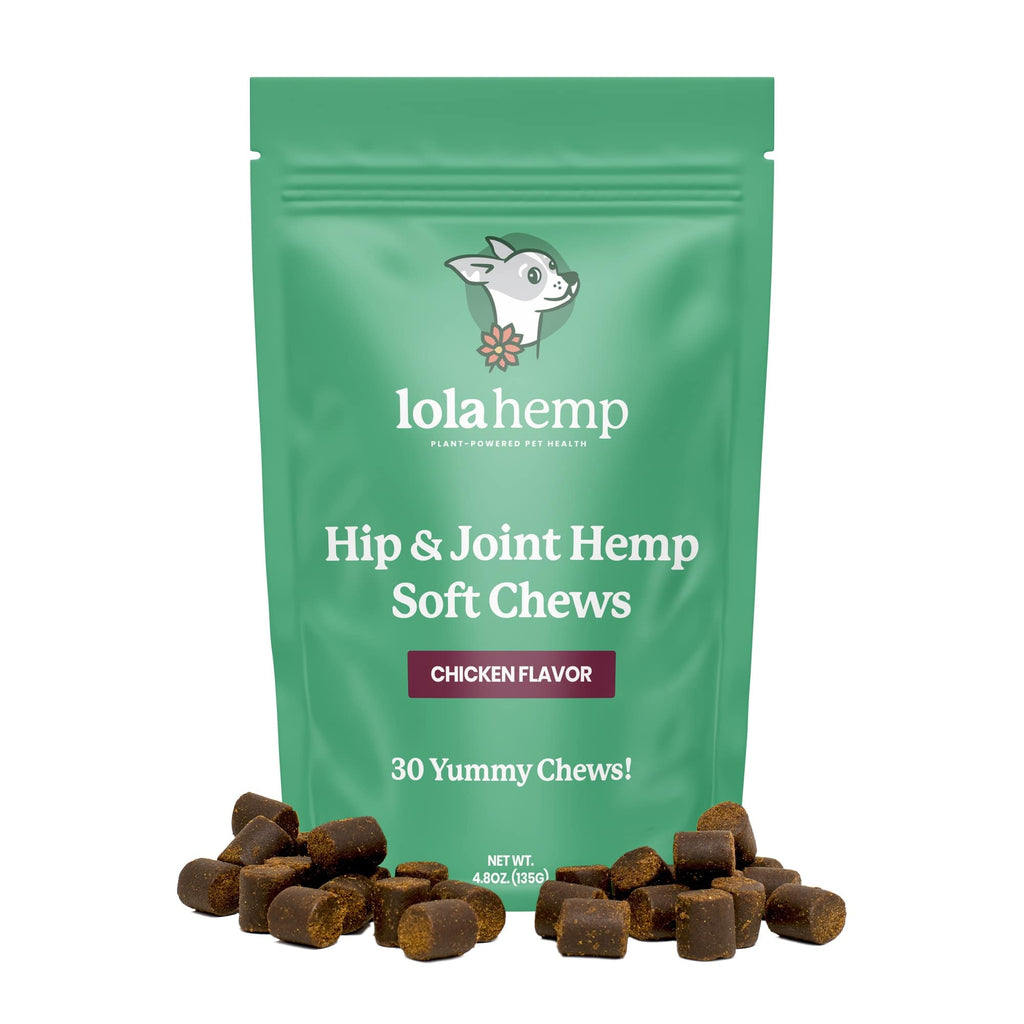 Lolahemp Hip & Joint Chews are formulated with Green Lipped Mussel, MSM and CBD, Glucosamine and they come in a delicious chicken flavor that dogs love.
Lolahemp Hip & Joint Chews are formulated with Green Lipped Mussel, MSM and CBD, Glucosamine and they come in a delicious chicken flavor that dogs love.
What is Green-Lipped Mussel?
Green-lipped mussels are a unique species of shellfish found in the waters surrounding New Zealand. Unlike regular mussels, they contain a powerful combination of anti-inflammatory compounds that may help support joint function.
Key Benefits of Green-Lipped Mussel for Dogs
- Joint Health Support: Omega-3 fatty acids in GLMs can help reduce inflammation and ease joint discomfort.
- Improved Mobility: Regular supplementation may help dogs maintain an active lifestyle.
- Anti-Inflammatory Properties: GLMs contain unique fatty acids that naturally reduce swelling and stiffness.
- Rich in Nutrients: These mussels provide essential vitamins, minerals, and amino acids to support overall well-being.
- Supports Digestive Health: GLMs can aid in gut function and support a balanced digestive system.
Green-lipped mussels have been used for their potential anti-inflammatory and joint-supporting benefits, though more research is needed to confirm their full effectiveness in dogs.
Scientific Research on Green-Lipped Mussels for Dogs
Several studies have examined the impact of GLMs on canine joint health. One study found that dogs given GLM supplements experienced less pain and improved mobility within six weeks. Another study showed similar results after eight weeks, with researchers noting that GLMs may be a beneficial alternative for dogs unable to take NSAIDs.
Importantly, these studies found no significant side effects, reinforcing the safety of green-lipped mussels as a supplement for dogs of all ages.
How to Choose the Best Green-Lipped Mussel Supplement
Green-lipped mussels are commonly available in powder, capsule, and chew form. If you're looking for an easy and effective way to incorporate them into your dog's routine, a supplement like Lolahemp Hip & Joint Soft Chews is a great option.
These soft chews include green-lipped mussel, full-spectrum CBD oil, MSM, and glucosamine to help small dogs like yours improve their symptoms. The combination of GLMs and CBD works to support joint health while also promoting relaxation and overall well-being.
Final Thoughts on Green-Lipped Mussels for Dogs
Green-lipped mussels are a natural and safe way to support joint health in dogs. While they may not be a cure for arthritis, studies suggest they can help improve mobility and reduce inflammation. Many dog owners have reported noticeable benefits, making GLMs a worthy consideration for dogs with joint stiffness.
For pet parents looking for a convenient supplement, products like Lolahemp Hip & Joint Chews offer a simple way to include GLMs and CBD in a dog's daily routine.
Frequently Asked Questions About Green-Lipped Mussels for Dogs
1. Are green-lipped mussels safe for dogs?
Yes, GLMs are generally safe when given in proper dosages. They are a natural source of nutrients and anti-inflammatory compounds.
2. How do green-lipped mussels help dogs?
GLMs provide omega-3 fatty acids, glycosaminoglycans, and antioxidants that support joint comfort, mobility, and inflammation response.
3. Can all dogs take green-lipped mussel supplements?
Most dogs can benefit from GLMs, but consult your vet first if your pet has shellfish allergies or existing health conditions.
4. How long does it take for green-lipped mussels to work in dogs?
Most dogs show improvement in mobility and comfort within 4–8 weeks of consistent supplementation.
5. Are there any side effects of green-lipped mussels for dogs?
Side effects are rare but can include mild digestive upset. Always introduce GLMs gradually and monitor your dog’s response.

